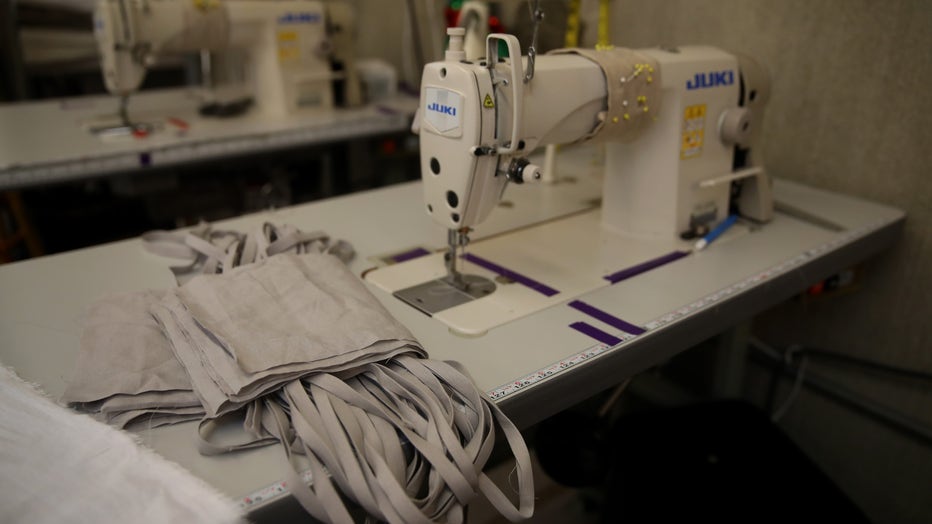Etsy calls on sellers to make face masks amid COVID-19 shortages
LOS ANGELES - Amid a critical shortage in supplies of surgical masks during the COVID-19 pandemic, online e-commerce website Etsy has called on its selling community to do their part to start making face masks.
“If you have the skill and materials, you can help–start making masks today,” said the company in a statement to any of its sellers who would have the materials to make homemade face masks.
RELATED: CoronavirusNOW.com, FOX launches national hub for COVID-19 news and updates
“Right now, Etsy has become a destination for fabric face masks, which is leading to skyrocketing demand. While we don't know how long this spike will last, we know that we're on-track to exhaust available inventory,” Etsy wrote.
Etsy wrote a series of best practices for sellers as well as a link to a New York Times article giving instructions on a DIY face mask.
RELATED: Desperate hunt for medical gear to fight COVID-19 becomes all-consuming
Sellers should not make any medical claims on the masks they sell including comparing them to N95 masks or claiming they follow CDC or FDA guidelines, the company said.

FILE - Fabric masks sit next to a sewing machine at Rough Linen on April 06, 2020 in San Rafael, California. (Photo by Justin Sullivan/Getty Images)
The news of Etsy encouraging its sellers to make masks comes after the CDC updated its recommendation for all individuals to cover their faces when going outside. President Donald Trump announced the new guidelines Friday.
RELATED: Sanitize groceries, discard takeout containers immediately: Doctor demonstrates 'sterile technique'
The new guidance, announced as states are bracing for critical medical supply shortfalls like those that other parts of the world have experienced, raises concern that it could cause a sudden run on masks.
Some states and cities that have been shipped masks, gloves, ventilators and other essential equipment from the nation's medical stockpile have gotten an unwelcome surprise: the materials are unusable.
Nearly 6,000 medical masks sent to Alabama had dry rot and a 2010 expiration date. More than 150 ventilators sent to Los Angeles were broken and had to be repaired. Oregon received masks with faulty elastic that could cause the straps to snap, exposing medical workers to the disease.
The Associated Press contributed to this report.

